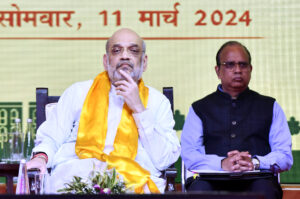Imperial College London administers possible coronavirus vaccine to first healthy volunteer
[ad_1]
A team of researchers from Imperial College London working on a cure for the novel coronavirus gave its first dose to a healthy volunteer who is being closely monitored but chooses to remain anonymous. The Imperial College drug trial has received more than £41 million in funding from the UK government and a further £5 million in philanthropic donations.
This drug is based on new self-amplifying RNA (saRNA) technology, which artificially creates the ‘spike protein’ that would boost the immunity to fight the virus. If successful, it has the potential to revolutionise vaccine development and enable scientists to respond more quickly to emerging diseases.
Thanking the “enthusiasm and support” of the volunteers, Dr Katrina Pollock, from Imperial College’s Department of Infectious Disease and Chief Investigator of the study, said, “We have reached a significant milestone in this ground-breaking study with the first dose of a self-amplifying RNA vaccine delivered safely. We are now poised to test the vaccine in the dose evaluation phase before moving forward to evaluating it in larger numbers.”
The first dose that was given to the volunteer will be followed with a second booster within four weeks. Several other volunteers are expected to receive the first dose over the coming days. All of these volunteers will be monitored closely for safety, as well as to ensure if their immune systems produce antibodies against the SARS-CoV-2 (Covid-19) virus.
Leading the drug trial, Professor Robin Shattock from the Department of Infectious Disease at Imperial College said, “The first participant marks an important step for our saRNA vaccine platform, which has never before been tried in humans. We now eagerly await rapid recruitment to the trial so that we can assess both the safety of the vaccine and its ability to produce neutralising antibodies which would indicate an effective response against Covid-19. I look forward to our progress in the coming months.”
Initially, only 15 healthy volunteers will be given the vaccine in low doses. These doses will be escalated for subsequent volunteers.
Over the coming weeks, 300 healthy participants are expected to receive two doses of the vaccine. If the vaccine is safe and shows a promising immune response in humans, then larger trials would be planned for later this year.
If all goes well, the team at Imperial College London says they have formed a new social enterprise VacEquity Global Health (VGH), in partnership with Morningside Ventures, to rapidly develop vaccines and distribute them as widely as possible in the UK and overseas, including to low- and middle-income countries.
On the other hand, the team conducting drug trials at Oxford University expects to roll out a vaccine for Covid-19 as early as October of this year. A drug company, AstraZeneca is geared up to produce 30 million vaccines in September itself if the trials go well and the “best scenario” is achieved.
[ad_2]
Source link






